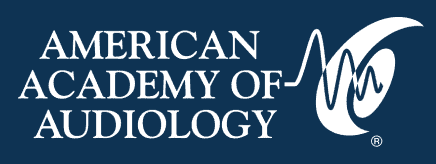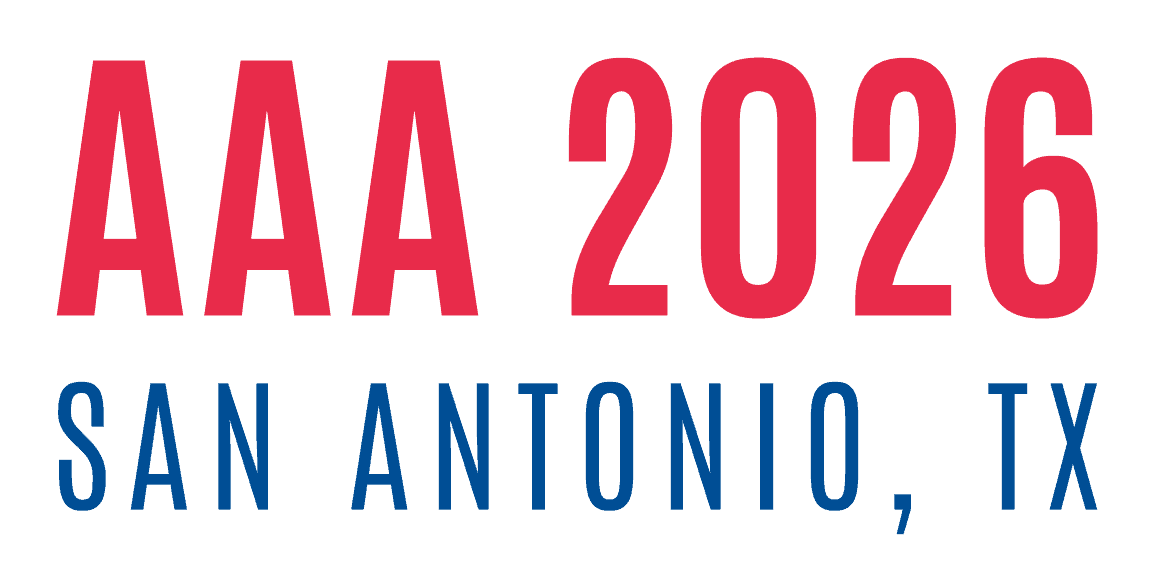The HearTECH Hub will showcase education, presentations, and learning opportunities starting Wednesday afternoon through Friday. It will also feature product displays and offer a social area to converse with colleagues and meet with the members and representatives of our Hub sponsors.
Earn up to 1.25 CEUs in the HearTECH Expo Hall.
Thank You to Our HearTECH Hub Sponsors
HearTECH Hub Education
Wednesday, March 26
Presented by Charlotte Thunberg Jespersen, MA, GN Hearing A/S and Lena Dieu, GN Group
Sponsored by ReSound.
CEUs: 0.05
Wednesday, March 26, 4:15–4:45 pm
This presentation will describe a data-driven deep neural network noise reduction and how it differs from conventional signal model-based noise reduction techniques. A study evaluating the data-driven noise reduction and its benefits to patients against a signal model-based noise reduction will be shared. Study results reveal a strong preference for the data-driven noise reduction over the signal model-based noise reduction, with participants favoring it 89% of the time when the strongest noise reduction is applied. These results highlight the potential of data-driven solutions, suggesting that data-driven noise reduction techniques may significantly benefit patients over conventional methods.
Presented by Sheila Moodie, PhD, Faculty of Health Sciences/School of CSD and The National Centre for Audiology and Dave Gordey, PhD, Western University
Sponsored by Oticon.
CEUs: 0.05
Wednesday, March 26, 5:00–5:30 pm
Effective communication by audiologists is essential for patient understanding of hearing health and adherence to hearing technology recommendations. Traditional counseling has relied on clinical tools like audiograms, but research suggests these may not effectively convey hearing loss. The WHO’s International Classification of Functioning highlights the importance of considering an individual’s biopsychosocial, societal, and life history contexts in providing personalized care. This presentation focuses on counseling strategies that incorporate these psychological and contextual factors to enhance patient understanding and engagement. patient engagement and outcomes.
Thursday, March 27
Presented by Joanne Zurcher, American Academy of Audiology, Melissa Heche, AuD, New York Speech and Hearing, and Michelle Moore, American Academy of Audiology
CEUs: 0.1
Thursday, March 27, 12:30–1:30 pm
This session offers an engaging, comprehensive guide to navigating the complex landscape of federal policymaking, identifying key legislative and agency players, and creating your elevator pitch to tell your story to influencers. Participants will leave equipped with actionable strategies for influencing policy and communicating effectively with decision-makers at both the grass-tops and grassroots levels. Join us to gain the confidence and practical tools you need to amplify your voice, drive change, and support the audiology community on a national scale.
Presented by Virginia Ramachandran, AuD, PhD
Sponsored By Oticon.
Thursday, March 27, 1:45-2:15 pm
Effective counseling practices make a tremendous difference in hearing healthcare. Being able to communicate the benefits of advanced technology in simple language patients can understand is the key element in this process. This course will provide suggestions utilizing principals of person-centered care to communicate clear benefits when making a strong recommendation.
Presented by Achin Bhowmik, PhD, Starkey
Sponsored by Starkey.
Thursday, March 27, 2:30–3:00 pm
Modern hearing aids have evolved into sophisticated devices integrating artificial intelligence (AI) and machine learning to enhance speech intelligibility, especially in noisy environments. This transformation enables advanced features like acoustic environmental classification, DNN-powered speech enhancement, and real-time noise reduction. Additionally, AI-driven health monitoring capabilities, such as fall detection and fitness tracking, position hearing aids as multifunctional tools for well-being. This presentation will discuss the core technologies, including hardware innovations and AI algorithms, reshaping hearing aid functionality, providing participants with insights into the future of hearing technology as a blend of communication and health solutions.
Presented by Brian Taylor, AuD, WS Audiology; Eric Branda, AuD, PhD, Signia; Dana Helmink, AuD, Widex USA
Sponsored by Widex/Signia.
Thursday, March 27, 3:30-4:30 pm
This panel discussion explores the role of technology accelerators in the hearing aid industry, focusing on two leading commercially available brands, Signia and Widex. The panel covers advancements in digital signal processing, wireless connectivity, and AI-driven sound customization that enhance hearing aid performance. The panelists examine how these technologies enable real-time noise reduction, speech enhancement, and personalized hearing experiences. Participants will gain insight into the development of hearing aid features like Bluetooth integration, app-controlled settings, beamforming, and AI-based algorithms. Key signal processing similarities and differences between the two brands will be highlighted.
Moderated by Brenna Carroll, AuD, Swedish Medical Center and Academy Board Member
Panelists Jason Mayer, Phonak; Patricia Trautwein, AuD, Cochlear; Mikkel Knudsen, ReSound; Søren Hvidberg Nielsen, Widex; Gary Rosenblum, Oticon, Inc.; and Leanne Powers, AuD, Signia
CEUs: 0.1
Thursday, March 27, 5:00-6:00 pm
In the United States, approximately 49 million adults have under or untreated hearing loss with this level expected to grow by 30 million over the next four decades. Key stakeholders committed to reducing the rate of untreated hearing loss include manufacturers, audiologists, physicians and policymakers but the role of audiologists is not always recognized as clinicians that can play an instrumental role in not only treating hearing loss, but also improving overall health outcomes. Audiologists offer comprehensive diagnostic and audiological services including evaluations, diagnostic testing and treatment of hearing and balance disorders. However, there are a variety of threats to the future of the audiology profession, such as lack of recognition by Medicare, physician views of hearing health, variation in audiology practice, narrow insurance provider networks, and lack of public awareness of audiological services. Audiologists must be ready to stand together, to clearly differentiate themselves, protect their future, raise their profile among lawmakers and other health care professionals, and ensure more adults are seeking out audiologists and their services moving forward.
Friday, March 28
Presented by Kevin Seitz-Paquette, AuD, Sonova
Sponsored by Phonak.
CEUs: 0.05
Friday, March 28, 9:05–9:35 am
DNN denoising is the use of advanced AI algorithms called ‘deep neural networks’ to remove noise from a speech-in-noise signal. Such algorithms must be able to differentiate speech from noise, not just detect the presence of speech. Phonak Audeo Sphere Infinio incorporates this technology in the Spheric Speech in Loud Noise program within AutoSense OS 6.0. Clinical trials have shown that Sphere Infinio improves speech intelligibility and reduces listening effort in challenging listening environments. This session will review the technical foundation of this technology and review the clinical evidence supporting it.
Presented by Dave Fabry, PhD, Starkey
Sponsored by Starkey.
CEUs: 0.05
Friday, March 28, 9:45–10:00 am
This session will detail the development of a hearing aid feature that provides a self-assessment tool for identifying gait, strength, or balance using the STEADI (Stopping Elderly Accidents, Deaths, and Injuries) protocol developed by the CDC. Discussion will focus on the results of multistage research collaborations between Starkey and Stanford. Discussion will focus on the research studies.
Presented by Melinda Anderson, PhD, Meta and Daniel Romero, PhD, Vanderbilt University
Friday, March 28, 10:15–10:30 am
Presented by: Amyn M. Amlani, PhD – President, Former President ADA & Otolithic, LLC, Rick Carlson – CEO, Neurotone AI, and Miles Aron, PhD – Co-Founder and COO, Neurotone AI
Hearing loss is the leading modifiable risk factor for dementia, yet most patients never receive rehabilitation beyond amplification. This session explores the critical brain-hearing connection, demonstrating how proactive auditory training enhances cognitive health, improves patient outcomes, and differentiates audiology practices from OTC hearing aid providers. Led by Dr. Amyn Amlani, this session will provide practical strategies for integrating aural rehabilitation into clinical workflows, ensuring better long-term patient success.
Presented by Patricia Gaffney, AuD, MPH and President, American Academy of Audiology
CEUs: 0.05 (when combined with the 9:45AM HearTECH Talk)
Friday, March 28, 11:30 am–12:00 pm
Audiologists enter the field with a passion for helping people, but too often, this desire to serve leads to undervaluing our expertise. This presentation will explore how audiologists can practice at the top of their license—focusing on services that require their unique skills—while ensuring they are appropriately valued. We will discuss strategies for empowering audiologists to educate patients on the value of our services and balancing professional fulfillment with financial sustainability. Attendees will leave with strategies to confidently advocate for their worth while maintaining the compassionate care that defines our profession.

